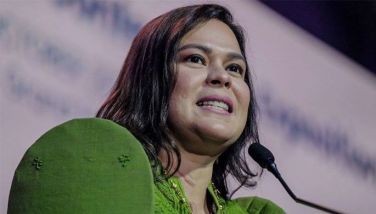‘Sin tax revenue not going to health care’
MANILA, Philippines - A senior administration lawmaker has called for a congressional inquiry into the reported failure of the government to allocate a big part of the revenue collection from the Sin Tax Law to finance the universal health care program.
“After its enactment two years ago, many Filipinos are still not covered by the universal health care program of the government and many cities and provinces are still without public clinics and hospitals,” Cagayan de Oro Rep. Rufus Rodriguez said.
Rodriguez filed House Resolution 1591, calling for an inquiry to have officials of the Department of Finance (DOF), Bureau of Internal Revenue (BIR) and Department of Budget and Management (DBM) shed light on the issue.
He said Republic Act 10351 or the Sin Tax law, enacted on Dec. 18, 2012, was expected to produce additional revenue amounting to P34 billion.
“The law was enacted to cover millions of Filipinos in the government universal health care program and the promise that the government will construct public clinics and hospitals throughout the country,” he said.
Rodriguez said the revenues to be collected from the sin tax law will be allocated and divided among the provinces producing burley and native tobacco and that the fund shall be exclusively utilized for programs to promote economically viable alternatives for tobacco farmers.
Abante party-list Rep. Maximo Rodriguez Jr., another author of resolution, said the law mandates the DBM, the Department of Health, Department of Agriculture and the Philippine Health Insurance Corp. to submit to the congressional oversight committee a detailed report on expenditures of the amount earmarked for universal health care program.
“It is incumbent upon the DBM and DOF to report to the House of Representatives and provide information on whether the goals of the law were met and where the money was utilized,” he said.
- Latest
- Trending




























